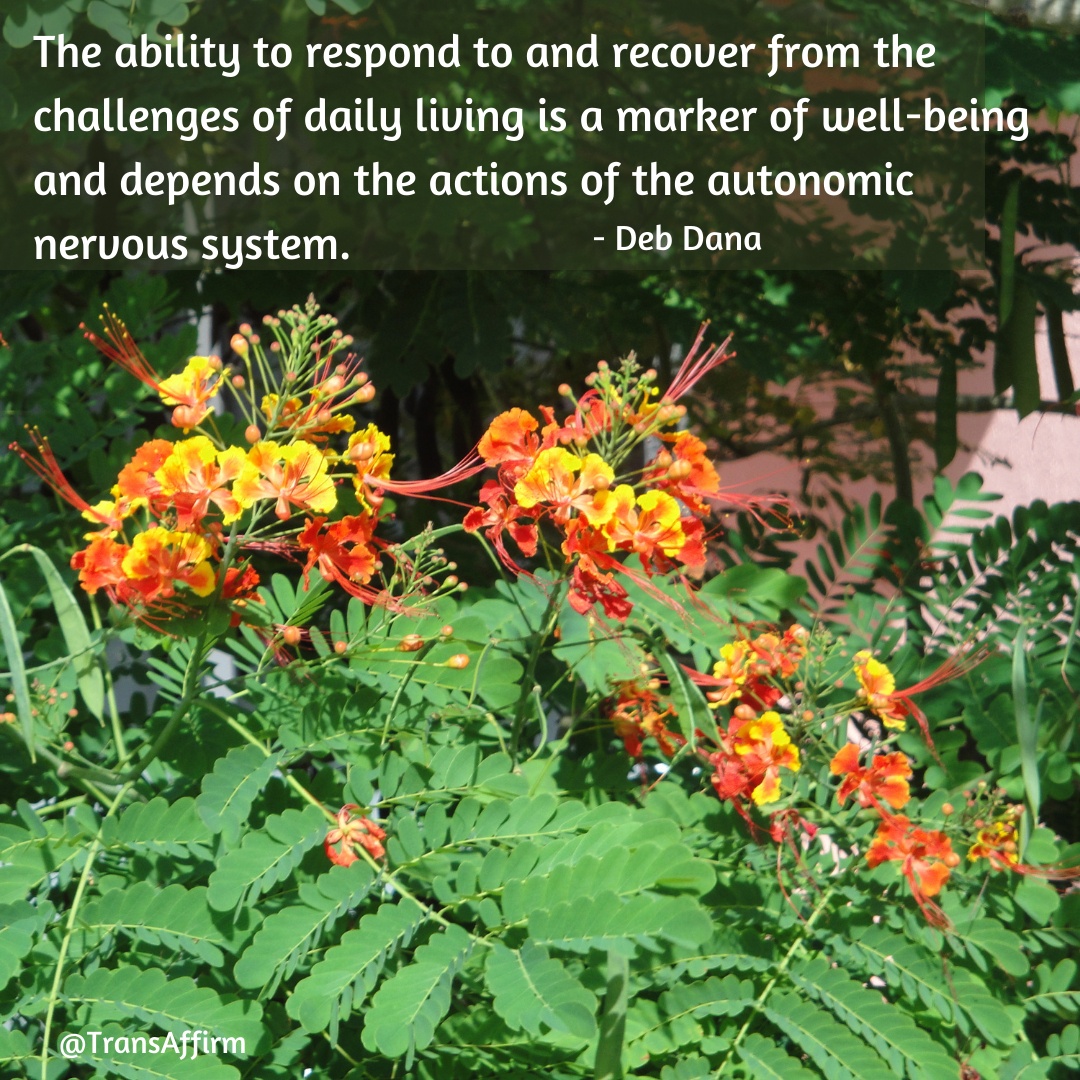Quote from Deb Dana

Mental health and health in general are not static states, or an end point on a journey.
Mental health is an on-going achievement. It is always in motion, as the challenges we face in our day to day lives are always in motion. And these challenges will depend on the various layers or intersections of our identity and lived experiences.
That is why the ability to respond and recover from challenges is a marker of mental health and well-being.
Initially we learn how to respond to challenges from our caregivers growing up. And if you grew up in a toxic, abusive, chaotic, or neglectful home environment, then the conscious patterns of responding you learned may be less than healthy.
And the way your nervous system responds to challenges is also set in this home environment and is rarely under our conscious control. When you grow up in these less than healthy environments, your nervous system’s response to challenge is often hyper- or hypo-arousal (see my previous posts) and addressing these responses will be vital to your healing.
Being able to talk about these challenges, past and present is important. And being able to address how our nervous system reacts to these challenges is even more important. This often comes from therapy that attends to your body, from neurofeedback, from trauma informed yoga, from dance and singing and rhythm.
Find what speaks to you and works for you. There is no one way to heal.
Deb Dana does trainings on polyvagal theory and has a book called Polyvagal Exercises for Safety and Connection, which this quote is drawn from.










